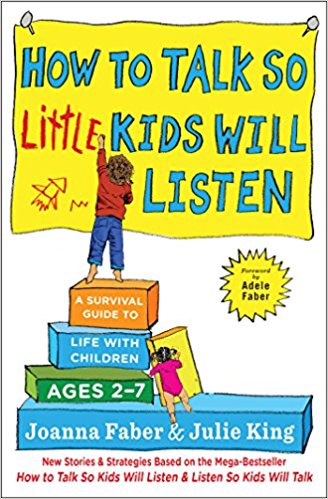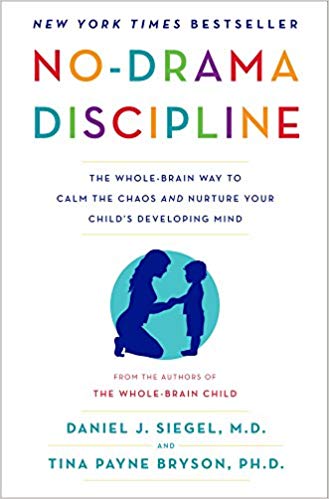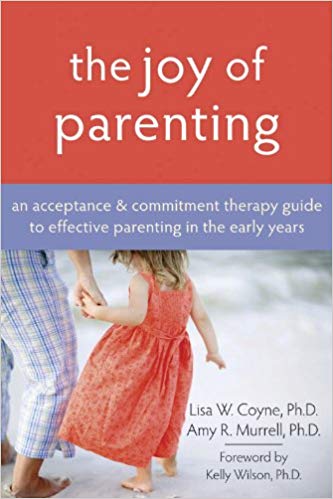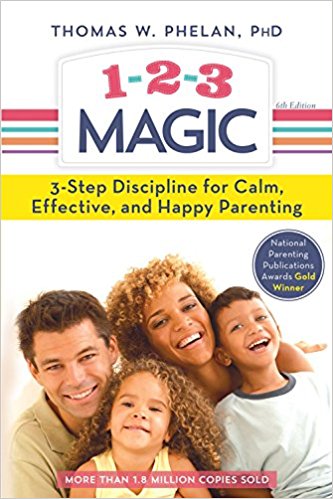When babies grow to become toddlers and then preschoolers, new challenges can arise. Getting children to cooperate when leaving the house, to play nicely with their siblings, and to sit at the table during meals, are examples of such challenges.
Parents may be interested in reading about how best to support their child’s emotional development, as well as how to curb tantrums, but it can be hard to know where to start to find these answers. Below is a review of four popular books. We hope that one of them best fits your family’s needs.
If you would like more information about how best to support your child’s emotional development, please contact me or one of the other clinicians at The Possibilities Clinic. We would be happy to speak with you and get to know your child and family’s needs.
1. How To Talk So Little Kids Will Listen 
by Joanna Faber and Julie King
What’s It About?
This book shows parents easy-to-use, practical tools for handling children’s emotions, getting through day-to-day tasks, and resolving conflict. It covers specific situations that can be challenging for families with young children, such as dinner time, sleep and resolving conflicts with friends and siblings.
Who’s It Written For?
The book is written for parents of children ages 2-7 who are looking for additional strategies and tools to help their children regulate their emotions, build a positive relationship with their children, and reduce the number and intensity of daily struggles. The book also has a chapter for parents of children who are wired differently, but this is not the focus of the book.
Some Main Concepts:
When kids don’t feel right, they can’t behave right: Strategies to validate children’s feelings so that they can feel better and behave better.
There are many different ways to elicit a child’s cooperation, including offering a choice, being playful, being descriptive, or shortening instructions.
Bottom Line:
This is a great book for parents looking for practical strategies for younger children. It uses simple language and has many examples that are very relatable!
2. No Drama Discipline
by Daniel Siegel and Tina Payne Bryson
What’s It About?
This book views discipline as a way to teach skills, nurture brain pathways that will help them in the future, as well as behave appropriately in a given situation. It combines practical strategies with neuroscience concepts.
Who’s It Written For?
The book is written for parents of children ages 18 months and older who are looking for positive strategies to elicit their child’s cooperation in different situations, as well as ultimately learn strategies to promote helpful behaviour in the future. The authors give parents an opportunity to reflect on the causes of their own behaviour as well as the behaviour of their children to consider what strategies may be helpful for the situation. The book has many examples as well as simple comics with illustrative examples, making it easy to read and refer back to. It also has a ‘refrigerator sheet’ summary for easy reference!
Some Main Concepts:
First connect with your child (e.g., go down to their level, validate their experience, listen, etc.), then focus on teaching the child about their feelings, how they impact others, and other alternatives when you and your child are ready.
Bottom Line:
This is a great book for parents looking for practical strategies combined with information about how the developing brain functions.
3. The Joy of Parenting
by Lisa W. Coyne and Amy R. Murrell
What’s It About?
This book applies principles of Acceptance and Commitment Therapy (ACT) to improve one’s parenting skills, awareness, and relationship with children. ACT is a therapeutic approach that “emphasizes compassionate acknowledgment and acceptance of our own experiences, in the service of effectively pursuing those things in life that matter most to us” (Coyne and Murrell, pg. 4).
Who’s It Written For?
This book is written for parents of children aged approximately 2 to 8 years of age, although parents with younger or older children could also benefit from its strategies, particularly those related to mindfulness.
The book does not address very extreme behaviours, so it is likely best for parents looking to improve their parenting skills and awareness and improve their relationship with their children, rather than solve particular challenging behaviours.
The authors present a number of exercises that involve reflection and practice, so the book would be most valuable for parents who have some time and interest in reflecting on their parenting strengths and area of challenge and are looking to try some new strategies and activities with their children.
Some Main Concepts:
Mindfulness is a non-judgmental awareness of the present moment. It can help you experience situations with your child more fully so that you can parent more thoughtfully and effectively, and less reactively. Reflecting on parenting values and choosing to live in ways that focus on what is important to yourself, helps to guide and support your children in consistent ways.
Bottom Line:
This book is best suited for parents of younger children who are looking to reflect on their own values and goals to help support their child’s emotional development.
4. 1-2-3 Magic
by Thomas W. Phelan
What’s It About?
This parenting book provides strategies for 1. Stopping “obnoxious” (undesired) behaviour, 2. Encouraging good behaviour, and 3. Strengthening parents’ relationships with their children. With this focus, the author also addresses common parenting challenges such as bedtime routines, completing homework, and mealtime challenges.
Who’s It Written For?
This book is written for parents of children ages 2-12 years of age who are experiencing frustration with respect to their children’s behaviours and are seeking relatively simple and quick strategies to decrease undesired behaviour and increase desired behaviour. The book is easy to read, provides chapter summaries and many examples.
The book focuses primarily on compliance rather than teaching skills or addressing what may be underlying specific behaviours in children. While it could be used with children with a variety of diagnoses, such as ADHD or Autism, it does not address the needs of children with more extreme or challenging behaviours.
Some Main Concepts:
When a child is behaving in an undesired manner (e.g., whining, arguing, yelling, having a tantrum), a parent or adult calmly counts to three. If the child does not stop the behaviour by 3, they receive a short time out. After the time out, there is no discussion about the behaviour, and the child can resume their activities.
Strategies are given to increase compliance with adult-desired activities, such as homework, getting dressed, playing independently, etc. Strategies are simple to use and include positive reinforcement, simple requests, charting, and using timers.
Strategies to strengthen parent/child relationships are also given and these focus on listening, building in one-on-one time, and managing parental expectations.
Bottom Line:
This book is suited for parents of typically developing children who are looking to reduce negative behaviours by teaching compliance.














